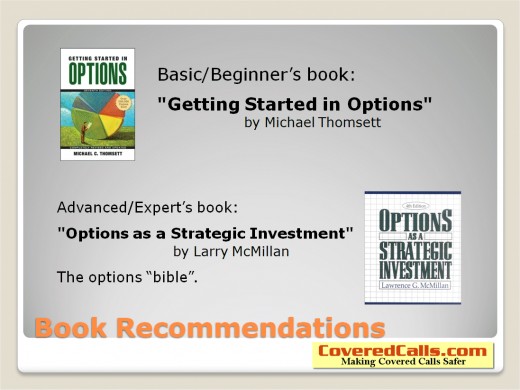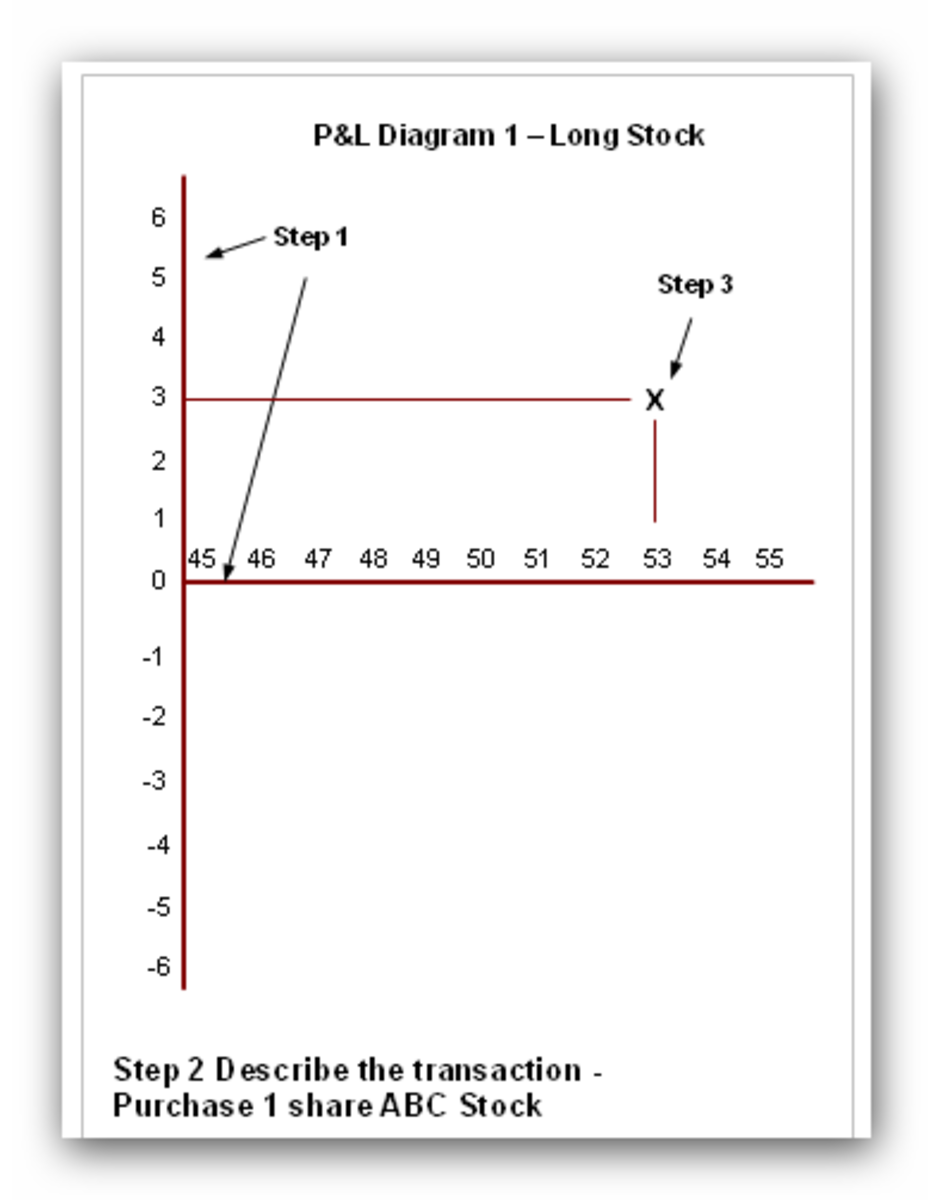Covered Calls Investing: Q&A
Covered Calls Q&A
QUESTION: Could you explain what is the overall strategy or goal involved with covered calls?
ANSWER: To generate steady monthly income.
Different people do CC's for different reasons, but this is probably the most common reason. CC'ing can also reduce your risk of owning the stock by lowering your net cost of the stock from the premium you collect. Other people like the idea of taking the investing profit "up front".
QUESTION: What do you consider an ideal or successful covered call investment?
ANSWER: One that makes money.
There are two types of "risks" associated with CC'ing: downside risk and upside risk. The downside risk comes from having the stock tank on you below your new net cost after collecting the CC premium. The upside risk is a "loss of opportunity" risk that occurs if the stock shoots up above your strike price so that you're capped on the ceiling with regards to profiting from a big upturn in the stock price. Some investors buy back their calls for a short-term loss here to keep the stock. Some people just let high flyers get called out and take the wad of cash and invest in another position. Using technical indicators such as BB and RSI can help to have an idea if a stock will be moving up or down in the short-term. This way you can decide if you should write an "in-the-money" (ITM) or an "out-of-the-money" (OTM) call.
QUESTION: How does a covered call trade begin?
ANSWER: Either buy "legging into" a position or by doing a "buy/write" (or by simply selling calls on stocks you already own). Normally, the terminology used by your broker will be something like: (1) buy the stock, then (2) "sell to open" the call option.
QUESTION: How far out do you write the call?
ANSWER: That's a personal choice. Some people like short-term (only writing one or two months out) while some people prefer longer terms.
Short-term selling can give you more periods annually to compound the CC premiums you collect, but also give you less time to react to an adverse move in the stock. Longer-term options will give you more premium, more time to react to bad stock moves, but less compounding periods throughout the year to realize profit from collecting CC premiums.
QUESTION: Do I need 100% of the funds to cover the shares I purchase or do I leverage with margin?
ANSWER: Margin is a two-edged sword and many times it bites you. If you're looking for peace of mind and sleeping comfortably at night, you should NOT use margin. We do not recommend it. Be prepared for frightening margin calls if you use it.
QUESTION: My main problem is TIME. Does investing using covered calls take much time? Do you have to constantly monitor your trades?
ANSWER: We'll answer this with a comment from a client:
"I fall into the category of having a real job and do not have the time to watch the market all day. I make my plans and enter the trades before I go to work in the morning and check them once or twice through the day to see if they are executed. I have a return that I am looking for, and if I am not satisfied with a call, I don't write it. Takes all the emotion out of it. Decide how much you will be satisfied with, pull the trigger, and forget it."
QUESTION: I only have about $20K to start with. Is that enough?
ANSWER: To be successful investing with any type of investing you need to diversify.
With CC'ing, you really don't want to write calls on any stock position of less than 400 to 500 shares because commissions will eat up your profits. If you are looking at starting CC trading with $20k and working with stocks with an average per share price of between $15 to $20 per share, then you should be able to nicely diversify into 3 or 4 different positions:
400 x $15 = $6,000 x 3 = $18,000
400 x $20 = $8,000 x 3 = $24,000
QUESTION: Any other books or educational/research material that you'd recommend?
ANSWER: To learn different option strategies, there are two books we recommend:
Basic/Beginner's book:
"Getting Started in Options" by Michael Thomsett
=======================
Advanced/Expert's book:
"Options as a Strategic Investment" by Larry McMillan
Also, you can "paper trade" with a Virtual account at good brokers like http://www.optionsXpress.com as you come up to speed and learn the strategies.
Recommended Books

Thank you, and Contact Information
Thank you for taking the time to visit our Hub on Covered Calls Investing.
Best Regards, ----- Shane Johns, President http://www.CoveredCalls.com Email: Writer@CoveredCalls.com








